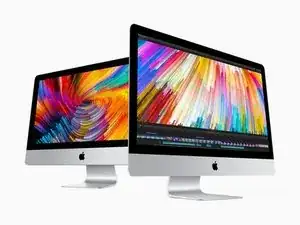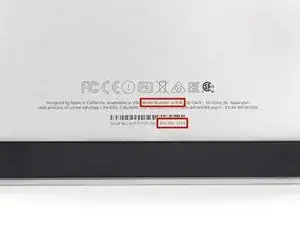
How to Reset the SMC on a Desktop Mac
Apple released its first desktop computer the Apple I in 1976. The device was designed and hand-built by Steve Wozniak out of a Palo Alto garage and sold at the suggestion of Steve Jobs. The device was designed to allow the user to connect a keyboard and display the interface on a television set. However, the device had no case and was sold as an exposed circuit board. The computer was sold for $666.66 and produced for a year before being discontinued for the production of the Apple II.
The Apple II improved upon the design of the Apple I, with the circuit board being moved into a plastic case with an integrated keyboard. The Apple II had several iterations, with the last, the Apple IIe, being produced until 1993.
The next major product released by Apple was the Lisa. It was one of the first computers with a Graphical User Interface (GUI) that was available to consumers, although it came at a high price. Although the device sold only 10,000 units over the two years it was available, it was influential in its inclusion of the GUI, which may have swayed the direction of personal computing away from the text-based computers seen throughout the 70s and early 80s.
The Macintosh was Apple’s more profitable and prolific offering, with the first Macintosh coming out in 1984. Conceived by Jef Raskin as a cheaper and more accessible alternative to the Apple II and Lisa computers. It was originally designed to implement a text-based interface capable of running multiple programs simultaneously, but during development was altered to include the microprocessor from the Lisa computer, and to run the same graphical-based programs that characterized the Lisa. However, it succeeded where the Lisa failed by offering this functionality at a lower cost, while also increasing the speed. Further iterations of the Macintosh would include color screens, compact designs, and a battery-powered model, the Macintosh Portable.
In 1998, Apple released the first iMac, the G3, which was an all-in-one computer with a translucent plastic case that allowed the user to see an obstructed view of the components inside. This design would grow to become smaller and thinner throughout the years, with a transition to aluminum back cases and intel processors around 2005.
Also released around the 2000s were a series of tower desktop Macs in the Power Mac series, and a line of compact desktops with the Mac Mini. The Power Mac line has since been discontinued to make room for the Mac Pro, Apple’s latest “tower-ish” desktop model, while the Mini continues to be produced.
iMacs of today look similar to monitors, with the computer built into the curved space behind the display. The model number and EMC number are located on the back of the device near where the stand connects to the display.

Mac Minis and Mac Studios are compact desktops that connect to a separate monitor. The model number and EMC number are located on the bottom of the device.
